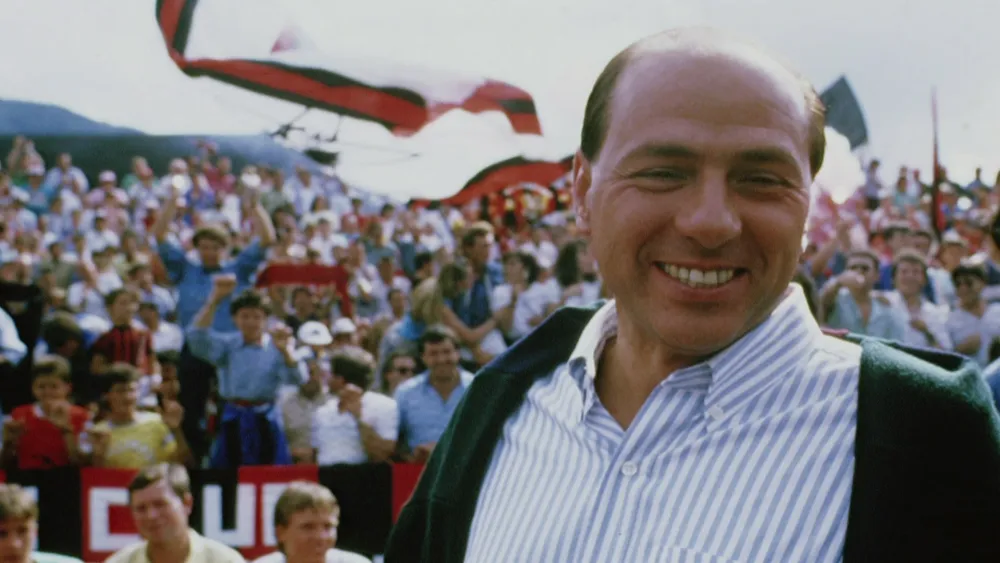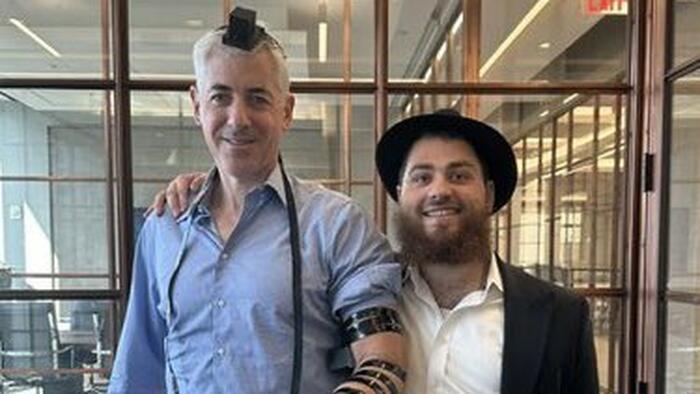
The late Silvio Berlusconi, the billionaire and former four-time Italian prime minister who once described himself as the “Jesus Christ of politics,” is the subject of ESPN Films’ latest “30 for 30″ installment “Berlusconi: Condemned to Win.”
It might seem odd that a man who was not only at the center of numerous criminal investigations involving embezzlement, tax fraud, and bribery, but also claimed that elections he lost were actually stolen from him, is the subject of a three-part sports docuseries. However, it turns out that Berlusconi’s involvement in sports created the pathway to his political power.
Berlusconi, who died in 2023, first rose to prominence as a business and media tycoon who owned one of Italy’s most storied football clubs, A.C. Milan. As Berlusconi transformed the team into arguably the world’s most successful club, he leveraged their victories to fuel his own popularity, ultimately propelling him to the highest political office in the country.
“Berlusconi was said to be an entrepreneur of emotions,” says “Berlusconi: Condemned to Win” director Sam Blair. “He harnessed the irrational fervor of sporting emotions to create a political movement.”
In series, Blair (“Maradona ‘86”) reveals that Berlusconi’s ascent raised troubling questions about how sport can mask corruption.
“(Berlusconi’s) story is about more than football or politics,” says Blair. “It’s about ambition, power, and the way sport can be used to reframe an entire nation’s identity. It’s a story about the seduction of winning, and the price a society pays when victory overshadows accountability.”
Blair was intrigued when Box to Box Films initially came to him with the idea of turning Berlusconi’s life into a “30 for 30.”
“It felt like the ultimate collision of sport and politics, and a story that was speaking to the world we live in today,” Blair says. “Like many people, I feel disoriented by the political upheavals of recent years, and this was a story that was 25 years ahead of where we are now.”
Variety spoke to Blair about “Berlusconi: Condemned to Win,” which premieres on Sept. 16 on the ESPN App for subscribers and on ESPN2.
When you were making the film, did it surprise you how similar Berlusconi is to so many current-day politicians? If so, was that part of the reason why you wanted to make this series?
Blair: The present-day echoes felt remarkable and were a huge reason to make it. Coming from the U.K., for many years, Berlusconi was considered a crude laughing stock, but since Brexit, we can no longer take such a lofty view of him. So, it felt like an opportunity to understand him and see where we might be heading. The cult of personality around Trump is so clearly comparable. A question with Berlusconi was whether there was an ideology he believed in, as he often made deeply troubling alliances with the hard right. But ultimately, the most important thing to Berlusconi was Berlusconi, and that’s what seemed to drive him. With Trump, I think we are yet to see how clear an ideology he has, beyond himself.
It’s very hard to get political docs made and distributed right now, so I’m wondering if you used soccer as the way into a film about a corrupt politician?
I’m a reluctant “sports doc” filmmaker, but sport is a wonderful Trojan horse when it comes to documentary storytelling. I’m always interested in how a film can take an audience somewhere they aren’t expecting, and as a filmmaker, I can shift the lens in any direction I choose. But the seductive power of sport, in this case, was absolutely central to the film’s thesis. We didn’t have to concoct it – at the heart of the series is the remarkable moment that Berlusconi starts to use sporting rhetoric to set off a political earthquake that is still reverberating.
What was the most challenging aspect of telling Berlusconi’s story?
Condensing the complexity and chaos of Italian politics into something digestible to an outside audience was a huge challenge. On the plus side, it contains endless drama and conflict, but would need a dedicated 10-part series to explain properly.
Who was the hardest person to convince to sit down for an interview, and why?
We started production when Berlusconi was still alive. We had contact with his people and came close to getting an interview, but his bad health got in the way and ultimately made it impossible. We were able to interview some key figures from his inner circle, but many players were reluctant to talk to us. Soccer stars aren’t known for their willingness to wade into politics, but Zvonimir Boban, a wonderful player who also happens to have a degree in history, gave us an honest and insightful interview.



